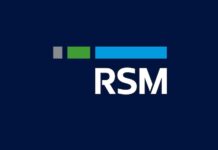
Robert Delany – Cofounder Maple Glen Strategic Advisors
Important trends influencing institutions of higher education in 2023.
— Robert Delany – Cofounder, Maple Glen Strategic Advisors
PHILADELPHIA, PENNSYLVANIA, USA, February 6, 2023 /EINPresswire.com/ — According to Rob Delany of Maple Glen Strategic Advisors, 2023 will be a year of transformation and of strengthening organizational resilience, for most institutions of higher education. Organizational resilience is an institution’s ability to recover and thrive, from challenges. As they begin 223, many institutions will find themselves behind the curve as they face a myriad of disruptive forces such as cost inflation, economic recession, underutilization of resources, a diminishing applicant pool, an evolving hybrid learning environment, technological obsolescence, and complex labor issues, to name a few.
Delany said, “resiliency comes from institutions being able to dispassionately challenge their status quo and view themselves from a new perspective, with brutal honesty, so that innovation can occur.”
Delany and Maple Glen Strategic Advisors co-founder, George Tsetsekos, have identified the following trends influencing institutions of higher education in 2023:
1) Increase in mergers and acquisitions of higher education institutions
As institutions analyze their strengths, weaknesses, opportunities and threats, many will conclude that they will need additional resources and expertise to succeed in the future. One of the most efficient ways to acquire those necessary resources is to combine with one or more compatible institutions. We will also see an increase in the formation of other relationships such as partnerships, associations, strategic collaborations and the like. 2023 will demonstrate record levels of mergers between institutions of higher education.
2) Dramatic expansion of certificate and professional education programs
In order to grow revenue during a dwindling base of traditional applicants, new programs will be created to stimulate interest and to appeal to a broader customer base. Market expansion is key to survival for most institutions. Nontraditional students and innovative offering will drive this expansion. In addition to full-scale degrees, higher education institutions will innovate curricula and certificate programs to better address the needs of professionals which have work/family balance issues, financial challenges, and professional development needs. This is the year of program innovation and expansion.
3) Expansion of inter-university partnerships to expand offerings of both educational courses and university degrees.
Dual degrees have become very popular as a way to distinguish oneself professionally. When students pursue a dual degree, they work on earning degrees from two different institutions or universities at the same time. University partnerships and relationships are evolving to enable more universities to accommodate the demands for dual degree. This is a true innovation which allows universities to offer more programming without permanently increasing their overhead costs.
4) Extensive assessment and restructuring of most existing academic programs
In an environment where many institutions are facing an existential battle, every facet of higher education programming will be reviewed and assessed regarding its value proposition, relevance, and resilience. Legacy programs and even sacred cow programs will be required to prove they have a place in today’s and tomorrow’s world, where neither the institution nor the program are “the only game in town”. Education and professional development programming that is more responsive to the market is up for grabs in 2023 and beyond. As higher education innovates to enhance its value proposition and accessibility, many programs will be forced to be reinvented or eliminated.
5) Outsourcing of student services to experts in their respective service sector
Operating and managing student services can be a distraction from delivering quality education. However, from a competitive standpoint, universities need to offer more services to their students and alumni than just education. No organization and thus no university can be the best at offering every ancillary service to their diverse customer base. Many student services such as dining, and the bookstore, have already been outsourced with tremendous success. More needs to be done in the areas of fitness, health, job placement, networking, travel, transportation, housing, professional development, and entertainment to name a few. Educational institutions need to focus on their core mission of education and ongoing professional support to thrive in a competitive market. They however also have to provide ancillary services to their student and alumni body to remain competitive. These ancillary services need to be high quality and cost effective for everyone involved, including the university.
6) Assess and restructure the physical plant and focus on improving asset and resource utilization
The age of empire-building is over. Most organizations have already recognized that you don’t need to own everything to deliver an outstanding service or product. The largest lodging and transportation companies in the world, don’t own any real estate or any vehicles. Universities need to dramatically increase the utilization of organizational assets and resources. Institutions also need to be much more strategic in utilizing their asset and resources. In 2023 balance sheets, asset base and resources will receive attention from those interested in ongoing stewardship and resilience.
7) Focusing on the business of higher education, including reducing overhead by outsourcing business services
Managing the big business of education is key in 2023. The business plan and its operation are under scrutiny. Make room in the strategic plan to focus on how to run a high performing business. Institutions have long known that outsourcing business services, such as legal, accounting, human resources, marketing, and facility management makes sense financially and otherwise. Leadership throughout has learned that tuition increases can no longer be the go-to solution. It is time to take a real look at the cost structure. Outsourcing gives organizations added bandwidth to focus on the highest and best use of their administrative resources which in turn allows them to better fulfill their core mission.
Said Delany, “2023 will be a year of innovation and disruption for institutions of higher education as they face the realities of a highly competitive marketplace that has a shrinking customer shrinking customer base. We cannot afford to lose the education offered in our country; we simply we simply can no longer afford to do it the way it has been done in the past.”
Maple Glen Strategic Advisors is a resource rich partner to public and private institutions in higher education.
Email: [email protected]
Leo Levinson
GroupLevinson Public Relations
+1 2155454600
email us here
Visit us on social media:
Twitter
LinkedIn
![]()









































